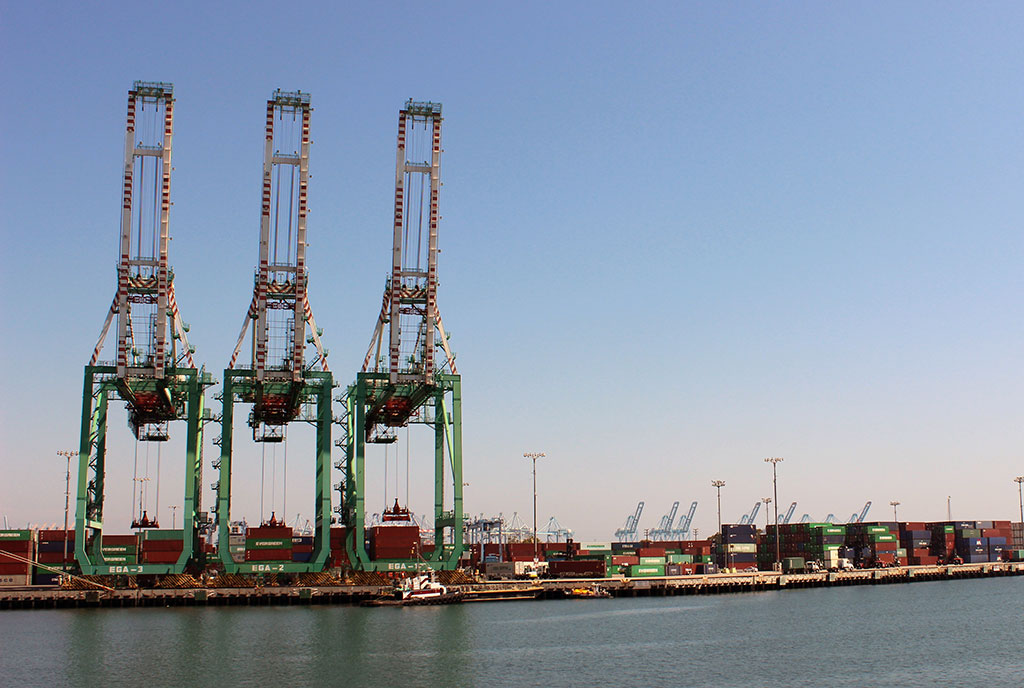PRESS RELEASE
For Immediate Release
July 11, 2018
Contact: Michael Soneff
(202) 578-0167
REP. BARRAGÁN CO-LEADS EFFORT URGING SECRETARY ZINKE TO KEEP OFFSHORE DRILLING SAFETY RULE IN PLACE
WASHINGTON, D.C.—U.S. Reps. Nanette Diaz Barragán (D-San Pedro), Alan Lowenthal (D-California), David E. Price (D-North Carolina), and Charlie Crist (D-St. Petersburg) today led more than 40 of their colleagues in sending a letter to Secretary of the Interior Ryan Zinke opposing his plan to roll back one of the commonsense oil and gas drilling safety regulations implemented after the 2010 Deepwater Horizon explosion. This rule, dealing with well control safety and standards, will soon be altered in an attempt to minimize the oil and gas industry’s safety obligations.
“At a time when nearly all of America’s coastal waters have been placed on the table for increased oil and gas drilling, the Trump Administration has simultaneously taken steps to ease safety regulations such as this one,” said Congresswoman Barragán. “This would be an enormous mistake.”
“Loosening this regulation increases the risk of a devastating oil spill and threatens to upend thriving fishing, tourism, and recreation businesses along the Pacific coast,” added Rep. Barragán. “Safety regulators should be focused on protecting the health and safety of the public, not on increasing corporate profits for oil and gas companies.”
Text of the letter follows:
The Honorable Ryan Zinke
Secretary
Department of the Interior
1849 C Street NW
Washington, DC 20240
Dear Secretary Zinke:
We write today in opposition to the proposed rule changes to the Well Control Rule (FR 2018-09305) published on May 11, 2018. In the aftermath of the Deepwater Horizon explosion in 2010, the Bureau of Safety and Environmental Enforcement (BSEE) adopted several recommendations from multiple investigation teams and incorporated certain industry technical standards to improve the safety of offshore operations. It is critical these standards, enhanced blowout preventer (BOP) well design and modified well-control requirements, remain fully intact.
Less than a decade ago, our country experienced the worst environmental disaster in its history when the Deepwater Horizon oil rig exploded and sank, leading to millions of barrels of oil pouring unchecked into the Gulf of Mexico and polluting our shores. This tragedy resulted in a loss of eleven lives and billions of dollars in fishing and tourism for Gulf Coast economies; the contamination of about 1,100 miles of coastal marshes and beaches; and huge impacts on dolphins, seabirds, and other wildlife in the entire Gulf of Mexico. Since then, the offshore oil and gas industry has fully rebounded, with record levels of offshore oil production and increased number of leases made available in deeper and ultra-deep water. The need for these safety standards to protect our coastal economies from another oil spill has never been stronger.
The Well Control Rule, as finalized in 2016, helped to make substantive improvements to the safety of offshore oil and gas operations on the Outer Continental Shelf, implementing many of the recommendations made by numerous expert panels that investigated the tragic Deepwater Horizon blowout and oil spill of 2010. Unfortunately, the recent proposal to weaken these safety measures risks our coastal economies and communities. Removing real-time monitoring requirements, eliminating the need for third-party verification organizations to be approved by the Bureau of Safety and Environmental Enforcement (BSEE), and allowing companies to submit equipment failures anonymously – effectively making the requirement voluntary – are all actions that will increase the risk of oil spills and reduce the public’s confidence that drilling activities are being done safely.
Operators in the Outer Continental Shelf have not demonstrated that they can adequately supervise themselves to prevent similar threats that caused the Deepwater Horizon blowout. In fact, in recent surprise inspections by BSEE on around 40 offshore platforms, serious and sometimes life-threatening problems were found at many of the sites, underscoring the need to hold the industry accountable. We must ensure that critical last-resort equipment, blowout preventers, are held to safe and reliable standards, as provided in the well-control rule. As the blowout preventer is the very piece of equipment that failed in April 2010, we should be strengthening and preserving these protections, not eliminating them.
While the Department of the Interior took a number of positive steps in the immediate aftermath of that disaster, such as implementing new safety standards and establishing an independent offshore oil and gas regulator, more work remains. The Department of Interior should not be rolling back offshore safety standards that further put our coastal economies and communities at risk. As your agency moves forward with consideration of these proposed roll-backs for offshore drilling safety, we urge you to prioritize the economic vitality of our clean coastlines and wildlife resources by keeping the 2016 Well Control Rule in place.
The PDF version of the letter is attached here.
###
Nanette Díaz Barragán is proud to represent California’s 44th Congressional District, which includes the communities of Carson, Compton, Lynwood, North Long Beach, Rancho Dominguez, San Pedro, South Gate, Walnut Park, Watts, Willowbrook and Wilmington.
Michael Soneff | Deputy Chief of Staff
Office of U.S. Rep. Nanette Diaz Barragán (CA-44)
1320 Longworth HOB | Washington, DC 20515
Cell: (202) 578-0167 | Desk: (202) 225-2156
Personal: (310) 968-5729

